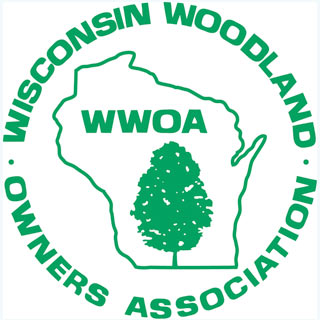News
Tax Tips for Forest Landowners for the 2016 Tax Year
by Dr. Linda Wang, National Timber Tax Specialist, U.S. Forest Service This report provides up-to-date federal income tax information affecting timber transactions. It assists woodland owners, logging professionals, foresters and their tax accountants in filing the 2016 tax returns. The information presented here is for educational purpose only and is not intended for legal or accounting advice.
DNR begins implementation of major effort to better align resources with stakeholder priorities
By Central Office November 30, 2016 Contact(s): Jennifer Sereno, DNR communications, Jennifer.Sereno@wisconsin.gov, 608-770-8084; Jim Dick, DNR spokesman, James.Dick@wisconsin.gov, 608-267-2773 MADISON – Following a yearlong effort to analyze staff resources and prioritize core work, the Wisconsin Department of Natural Resources Wednesday announced implementation plans for a strategic effort to better align its functions and organizational structure with the changing needs of customers and stakeholders.
Hunters! Know your Zones
Know your zones! Use the new interactive map to determine which rules apply where you hunt MADISON – Before heading into the woods this deer season, hunters should be sure to check out the online deer zone and management unit map to see which counties are classified as split Deer Management Units (DMU) in 2016.
Online tools to help hunters for 2016 gun deer hunt
Tools available online will help hunters learn all they need to know about the 2016 gun deer hunt MADISON – A number of tools and helpful documents found online make it easier than ever to prepare for the 2016 gun deer hunt.
Online tools to help hunters for 2016 gun deer hunt
Tools available online will help hunters learn all they need to know about the 2016 gun deer hunt MADISON – A number of tools and helpful documents found online make it easier than ever to prepare for the 2016 gun deer hunt.
DNR names new Chief State Forester
MADISON — Fred Souba Jr. has been appointed Chief State Forester by the Wisconsin Department of Natural Resources. The 40 year forest industry veteran will also serve as administrator for the DNR Division of Forestry. Currently the owner and Senior Consultant of ProVision Forestry LLC, Souba brings a vast and unique set of skills and forestry experience to the position.
Public meetings set on changes to Brule River and other northern forest master plans
Published by Central Office October 18, 2016 Contact(s): Carmen Hardin, DNR Division of Forestry, 608-267-3139 or Paul Holtan, DNR Office of Communications, 608-267-7517 MADISON – The public will have an opportunity at upcoming open house meetings and open office hours to review and comment on proposed changes to master plans for several northern forests and on a 15 year review of the Brule River State Forest master plan.
EAB found in Manitowoc County
MADISON – Emerald ash borer has been confirmed for the first time in Manitowoc County, in a private woodlot in the Town of Schleswig. Although EAB had not previously been found in Manitowoc County, the county has been under quarantine for EAB since 2014, when infestations were found in neighboring Calumet and Outagamie counties.
Sustainable forestry in Wisconsin recognized nationally
Sustainable forestry in Wisconsin recognized nationally MADISON – Forest certification initiatives in Wisconsin received national honors from the Forest Stewardship Council with presentation of the 2016 FSC Leadership Award to the Wisconsin Department of Natural Resources at the recent national Greenbuild conference.
Managed Forest Law & Forest Crop Law DNR Guidance Issued
The WI DNR has issued final guidance on changes made to the Managed Forest Law and Forest Crop Law programs based on Act 358 passed by the legislature and signed by the Governor this past spring.
